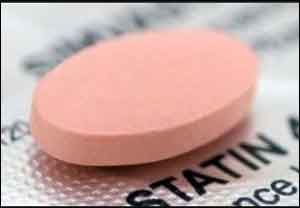- Home
- Editorial
- News
- Practice Guidelines
- Anesthesiology Guidelines
- Cancer Guidelines
- Cardiac Sciences Guidelines
- Critical Care Guidelines
- Dentistry Guidelines
- Dermatology Guidelines
- Diabetes and Endo Guidelines
- Diagnostics Guidelines
- ENT Guidelines
- Featured Practice Guidelines
- Gastroenterology Guidelines
- Geriatrics Guidelines
- Medicine Guidelines
- Nephrology Guidelines
- Neurosciences Guidelines
- Obs and Gynae Guidelines
- Ophthalmology Guidelines
- Orthopaedics Guidelines
- Paediatrics Guidelines
- Psychiatry Guidelines
- Pulmonology Guidelines
- Radiology Guidelines
- Surgery Guidelines
- Urology Guidelines
Which statin users are at greatest risk of T2D?

Statins have been known to increase the risk of incident type 2 diabetes mellitus (DM); however, other factors, especially hypertension, are also associated with DM development.The risk for new-onset type 2 diabetes (T2D) is listed on statin labeling, but it is not clear which patients are at greatest risk. Dr.Lee SE and colleagues conducted a nationwide health-screening cohort study to investigate whether statin use increases the risk of DM and further analyzed whether the relation between statin use and incident DM differs according to the presence of hypertension and gender.The researchers found that Statin use increased the risk of new-onset DM only in normotensive patients and hypertensive women.The study has been published in PLoS One.
From a nationwide health-screening cohort, 40,164 participants with total cholesterol levels eve mg/dL and without pre-diagnosed DM, cardiovascular disease, or cancer, who underwent a series of regular health check-ups, were enrolled. Statin users were defined as participants who were prescribed statins more than twice during 6 months.The participants included 55.7% statin users, 31.2% with baseline hypertension, followed for mean 7.7 years.
The investigators found that Incident T2D was developed in 7.6% and 5.7% of statin users and nonusers, respectively (P=.045), with HR of 1.66 (P<.001) after multivariable adjustments..Inaddition to this Statin use significantly increased T2D risk only in normotensive (HR, 1.31; P=.0039) and not in hypertensive patients (1.18; P=.114).Further in men, statin use was not associated with new-onset T2D (HR, 1.19; P=.101) even after adjustment for cholesterol change, whereas in women the association was significant (1.80; P<.001).In men, statin use was not associated with T2D among hypertensive patients (HR, 1.18; P=.274) but significantly increased risk among normotensive men (1.61; P<.001).Last but not the least Statin use was associated with increased T2D risk in both normotensive (HR, 1.76; P<.001) and hypertensive (1.32; P=.030) women.
The researchers concluded that Statin use increased the risk of new-onset DM only in normotensive patients and hypertensive women, suggesting that these groups should be more carefully monitored for the development of DM during the course of follow-up.

Disclaimer: This site is primarily intended for healthcare professionals. Any content/information on this website does not replace the advice of medical and/or health professionals and should not be construed as medical/diagnostic advice/endorsement or prescription. Use of this site is subject to our terms of use, privacy policy, advertisement policy. © 2020 Minerva Medical Treatment Pvt Ltd